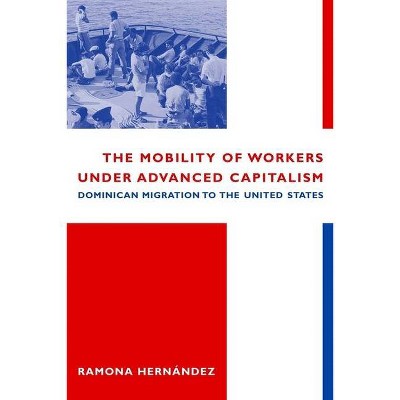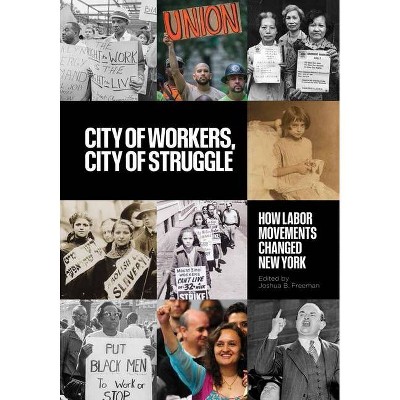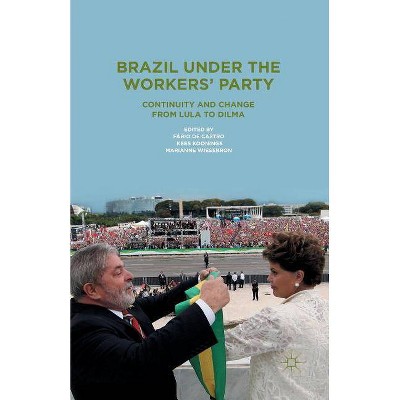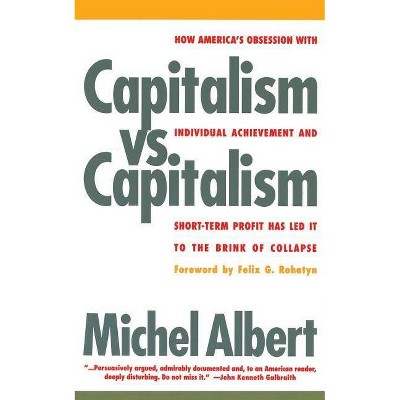The Mobility of Workers Under Advanced Capitalism - by Ramona Hernández (Paperback)

Similar Products
Products of same category from the store
AllProduct info
<p/><br></br><p><b> About the Book </b></p></br></br><P>Using Dominicans in New York City as a case study, Ramona Hern?ndez challenges the old belief that workers necessarily migrate from one region to another because of supply and demand or because of a de facto government policy to make people leave or stay. As a result, she shows that the traditional correlation between migration and economic progress does not always hold true.<p/><br></br><p><b> Book Synopsis </b></p></br></br>What explains the international mobility of workers from developing to advanced societies? Why do workers move from one region to another? Theoretically, the supply of workers in a given region and the demand for them in another account for the international mobility of laborers. Job seekers from less developed regions migrate to more advanced countries where technological and productive transformations have produced a shortage of laborers. Using the Dominican labor force in New York as a case study, Ramona Hernández challenges this presumption of a straightforward relationship between supply and demand in the job markets of the receiving society. She contends that the traditional correlation between migration and economic progress does not always hold true. Once transplanted in New York City, Hernández shows, Dominicans have faced economic hardship as the result of high levels of unemployment and underemployment and the reality of a changing labor market that increasingly requires workers with skills and training they do not have. Rather than responding to a demand in the labor market, emigration from the Dominican Republic was the result of a de facto government policy encouraging poor and jobless people to leave--a policy in which the United States was an accomplice because the policy suited its economic and political interests in the region.<p/><br></br><p><b> Review Quotes </b></p></br></br><br>A superb economic history... useful... excellent... highly recommended.--Choice<br><br>The Strength of Hernández' book lies in her showing, on the one hand, the structural character of migration and, on the other, the fact that migration is not necessarily functional to the needs of the global economy.--Jose Itzigsohn "Centro Journal "<br><br>Hernandez analyzes the data that document the reality that inspired<i>Nueba Yol, </i> arguing that many Dominicans know the harsh facts but come [to New York] anyway. Her book convincingly describes a troubling new scenario and gives a much-needed reality check.--Michele Wucker "Journal of American Ethnic History "<br><br>Hernandez provides a succinct and interesting overview of how the geopolitics of the Dominican Republic encouraged emigration.--Gareth A. Jones "Latin American Research Review "<br><br>Hernandez succeeds in bringing to the reader's attention some of the very troubling dimensions of Dominican settlement and incorporation in New York City. This work provides a strong foundation for future research on Dominican immigration.--Greta Gilbertson "American Journal of Sociology "<br><br>Hernandez's book is very well documented and returns to a range of structural factors that affect international migration but are commonly ignored in recent studies...This book is an important contribution to the literature on migration.--Estela Rivero-Fuentes "Journal of Ethnic and Migration Studies "<br><br>With the utmost civility, this volume takes to task truisms concerning immigration theory and Dominicans' purported middle-class status, entrepreneurial bent, and prosperity.--Glenn Jacobs "Latino Studies "<br><p/><br></br><p><b> About the Author </b></p></br></br>Ramona Hernández is the director of the CUNY Dominican Studies Institute. She is the author of <i>The Dominican Americans.</i>
Price History
Price Archive shows prices from various stores, lets you see history and find the cheapest. There is no actual sale on the website. For all support, inquiry and suggestion messagescommunication@pricearchive.us




















